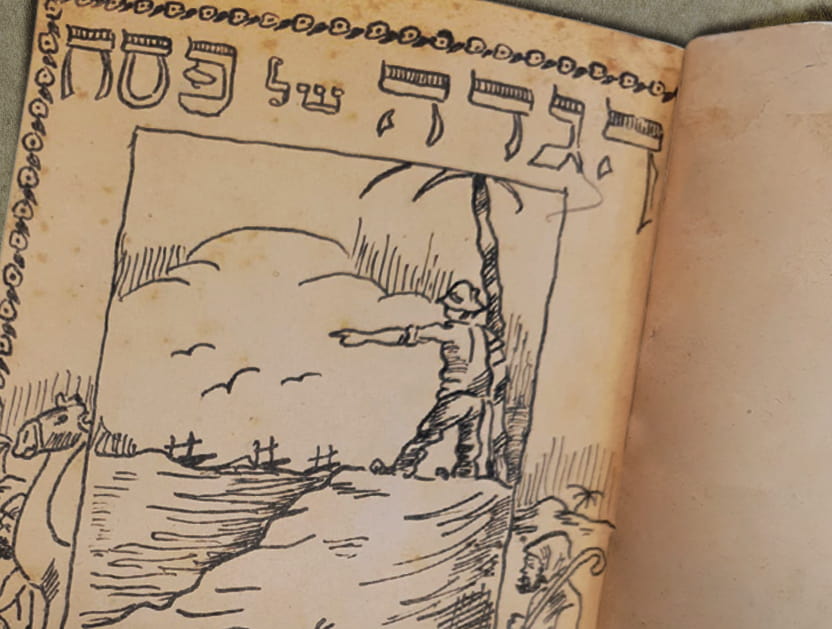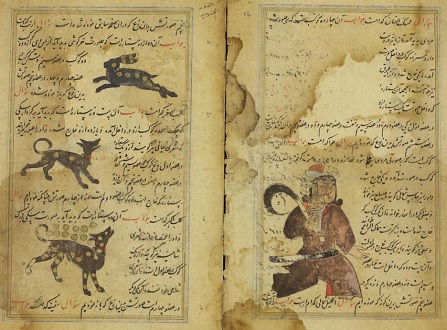גוסטב לנדאואר (1919-1870) היה אנרכיסט יהודי גרמני, סופר, מתרגם והוגה דעות רדיקלי. בהתבסס על השפעתו של פטר קרופוטקין הוא תמך באנרכיזם קומוניסטי ובאנרכו-פציפיזם, והיה אחד התיאורטיקנים והפעילים המובילים בתקופת האימפריה הגרמנית. לנדאואר היה אחד מעורכי העיתון הגרמני Der Sozialist, וחבר מייסד של Volksbühne ('תיאטרון העם') בברלין. הוא התפרנס כמורה להיסטוריה פוליטית וחברתית עבור מעמד הפועלים, ועם שותפתו הדוויג לכמן כמתרגם של יצירות ספרותיות, כגון של שייקספיר ושל אחרים. בשנת 1918 התמנה לנדאואר לנציב הנאורות וההוראה הציבורית, ברפובליקה הסובייטית הבווארית קצרת הימים, כשקיבל את תפקידו של שר בית הספר והכנסייה המלכותי הקודם, אך נעצר ונרצח על ידי חיילים אנטי-מהפכניים ב-2 במאי 1919. בתחילת שנות ה-20 פרסם חברו הקרוב מרטין בובר את יצירותיו החשובות של לנדאואר.

| כותר |
Gustav Landauer Archive. |
|---|---|
| כותרים נוספים |
כותרת בעברית: ארכיון גוסטב לנדאואר. |
| הערות |
The current order of the archive is not the final one. There is an inventory list for a first orientation. Any order of the materials after consultation with the archival staff only. Copies/עותקים: The most of the archive is microfilmed: A263/I-VII. |
| הערת ציטוט |
ARC. Ms. Var. 432, Gustav Landauer Archive, Archives Department, National Library of Israel, Jerusalem |
| מתוך |
Gustav Landauer Archive. |
| סימול קודם |
Ms. Var. 432 |
| רמת התיאור |
Fonds Record |
| עותקים |
The most of the archive is microfilmed: A263/I-VII. |
| תקציר ביוגרפי |
Gustav Landauer was born as the son of a German-Jewish family from Karlsruhe on April 7, 1870. He studied German literature and language at the universities of Heidelberg, Berlin and Straßburg. In his later works the influence of Johann Wolfgang von Goethe and Lew Tolstoi can be seen, also of the philosophy of Johann Gottlieb Fichte and Pierre-Joseph Proudhon, and of the anarchist theories of Michail Bakunin and Peter Kropotkin. He lived for many years in Berlin, where he was exposed to the effects of modern industrial society, and this experience became the base of his interest in socialist politics. In the early 1890s he was a member of the so called Independents, a group of revolutionary socialists that had been thrown out of the German Socialist Party (SPD). At the international socialist workers' congress in August 1893 in Zurich he represented the Berlin anarchists and supported the idea of an "anarchist socialism", however the congress supported parliamentarism and excluded the anarchists from their organization. In October 1893 Landauer was arrested in Berlin for incitement and convicted for a two month, then nine month, prison sentence. In prison he wrote diaries and letters. In 1894 he married Margarethe Leuschner. Living in Berlin, he published the newspaper "Der Sozialist-Organ für Anarchismus-Sozialismus" between 1895 and 1899. He also championed the cooperative "Befreiung", one of the first cooperatives in Berlin which opened it first store in 1895. He earned his living also by giving lectures on anarchist and socialist topics, political history and philosophical history. In 1899 he moved to England with his partner Hedwig Lachmann, where they translated the works of Shakespeare, Oscar Wilde and others. He also later translated the works of Proudhon. In 1914 he wrote against the war from an anarchist viewpoint. He divorced his first wife Margarethe and married Hedwig Lachmann in 1903. In 1916, due to financial constraints, the family was forced to move from Berlin to Krumbach in South Germany, where Hedwig Lachmann died. At the end of 1918 Landauer was appointed dramatic adviser at the theater of Düsseldorf. After the end of the war and at the beginning of the November revolution of 1918 Kurt Eisner invited Landauer to join the revolution in Bavaria. During the soviet republic of Bavaria Landauer became commissioner of enlightenment and public instruction, however after the takeover of the republic by the communist party in April 1919 he resigned from this position. During the counterrevolution and breakup of the republic by paramilitary regiments he was arrested on May 1st, 1919, taken to prison and the next day beaten and shot to death. Martin Buber collected the writings of Landauer in the following years and published some of his works in three separate volumes. |
| היסטורית בעלים |
The archive was received as separate gifts from R. David Greenberg & Marion Schneider, & includes items from the Martin Buber Archive. |
| הערת שפה |
The materials are in German. |
| קרדיטים |
Gustav Landauer Archive, The National Library of Israel. Digitization and cataloguing of this fonds was funded by Deutsche Forschungsgemeinschaft (DFG / German Research Foundation) under Germany's Excellence Strategy - EXC 2176 'Understanding Written Artefacts: Material, Interaction and Transmission in Manuscript Cultures', project no. 390893796. The research is conducted within the scope of the Centre for the Study of Manuscript Cultures (CSMC) at Universität Hamburg. Sammlung Lindenmayr. |
| מספר מערכת |
990026508640205171 |
| קישורים |
תמונת ארכיון |
בכל שימוש יש לציין את מקור הפריט בנוסח הבא:
Gustav Landauer Archive, The National Library of Israel. Digitization and cataloguing of this fonds was funded by Deutsche Forschungsgemeinschaft (DFG / German Research Foundation) under Germany's Excellence Strategy - EXC 2176 'Understanding Written Artefacts: Material, Interaction and Transmission in Manuscript Cultures', project no. 390893796. The research is conducted within the scope of the Centre for the Study of Manuscript Cultures (CSMC) at Universität Hamburg. Sammlung Lindenmayr.
תנאי השימוש:
לכל תיק בארכיון נקבעו תנאי השימוש המתאימים
תנאי השימוש מופיעים בדף התיק הארכיוני באתר הספרייה הלאומית.
למידע נוסף על שירות בירור מצב זכויות היוצרים ותנאי השימוש בפריטים מאוספי הספרייה לחצו כאן.
תצוגת MARC
יודעים עוד על הפריט? זיהיתם טעות?

 כניסה עם גוגל
כניסה עם גוגל
 כניסה עם פייסבוק
כניסה עם פייסבוק





